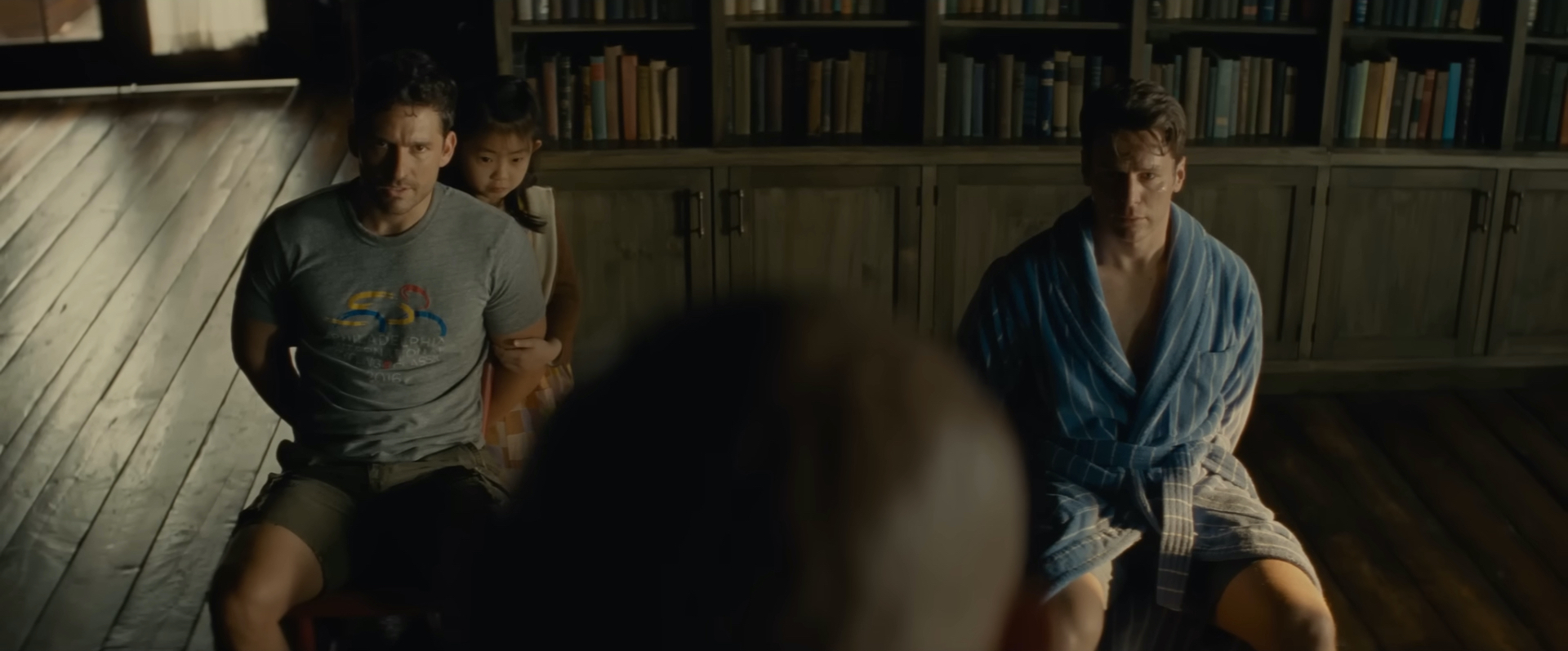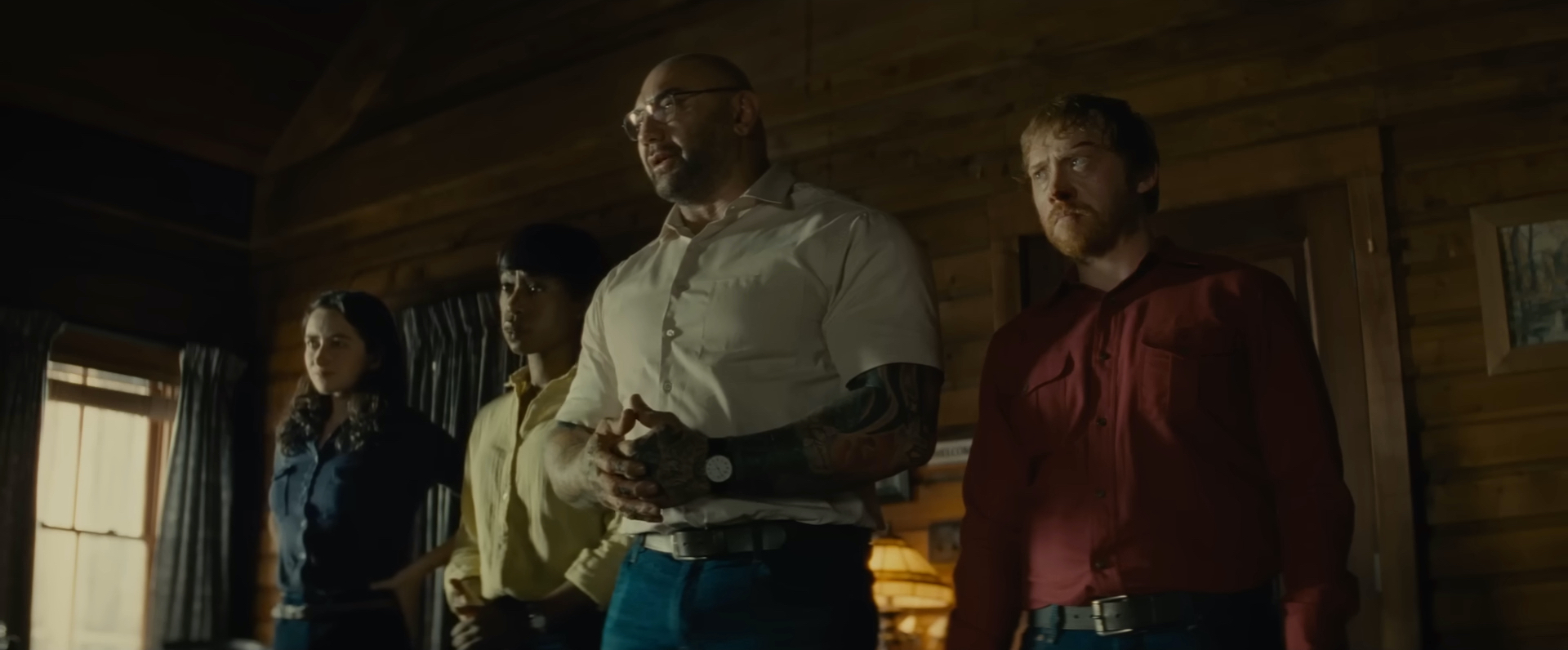M. Night Shyamalan | 1hr 40min

At their weakest, M. Night Shyamalan’s high-concept thrillers fall prey to uneven, contrived plotting before whimpering out with underwhelming twists. Maybe then it is his decision to remain relatively faithful in adapting Paul Tremblay’s novel The Cabin at the End of the World which makes his most recent psychological horror such an engrossing moral dilemma of apocalyptic proportions. There is a translation that takes place from page to screen here which effectively keeps this single location from growing too inert in its staging, making Knock at the Cabin feel both arrestingly claustrophobic and dauntingly cosmic in its stakes. As a result, this home invasion story also feels entirely fresh in its setup, taking us right to the edge of Armageddon without leaving its surrounding rural forest.
The arrival of four mysterious strangers at the isolated holiday cabin where Eric, Andrew, and their daughter Wen are staying brings with it the ultimate ‘trolley problem’ – to avert the end of the world, one of them must kill another as a willing sacrifice. If they refuse, their small family will be the only ones left alive as the sole survivors. Each time they say no, another plague will be unleashed across the Earth, and though it quickly becomes evident to us that this is not a hoax, these young fathers remain wilfully obstinate.
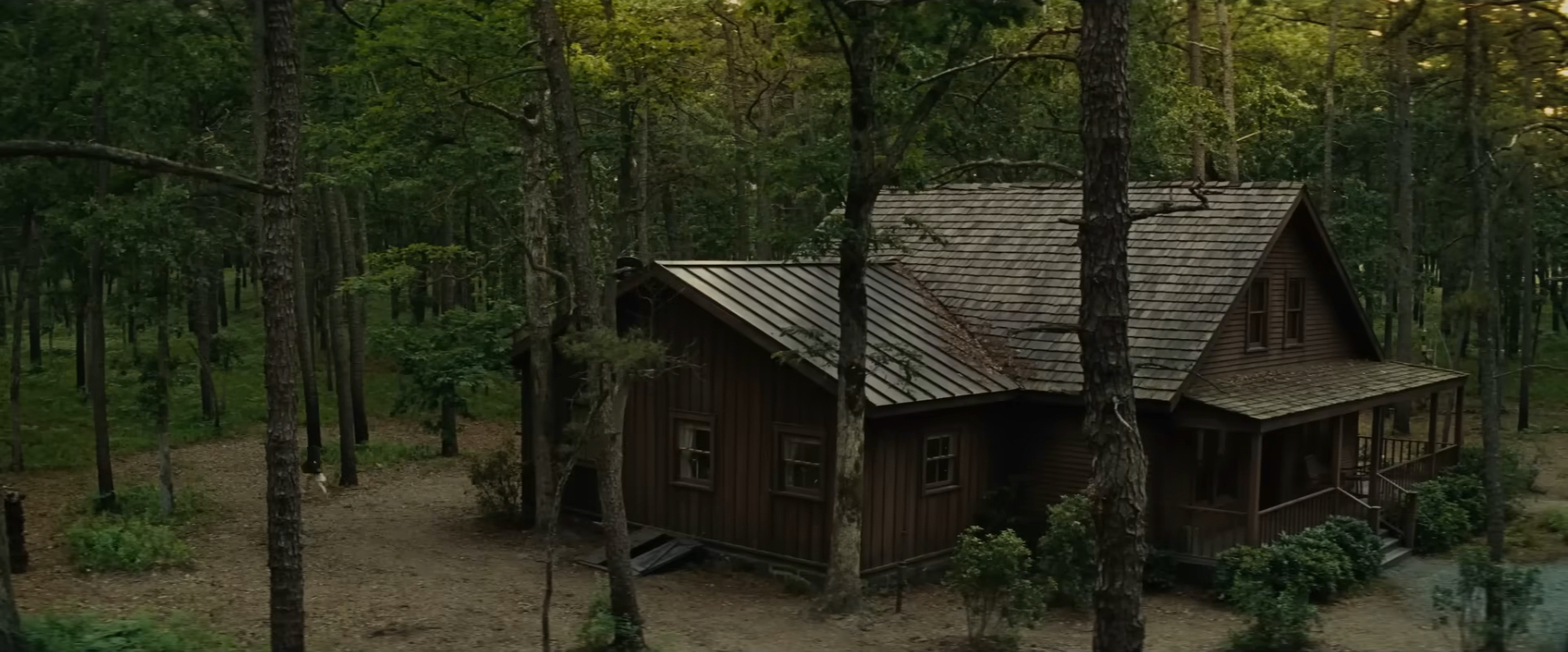
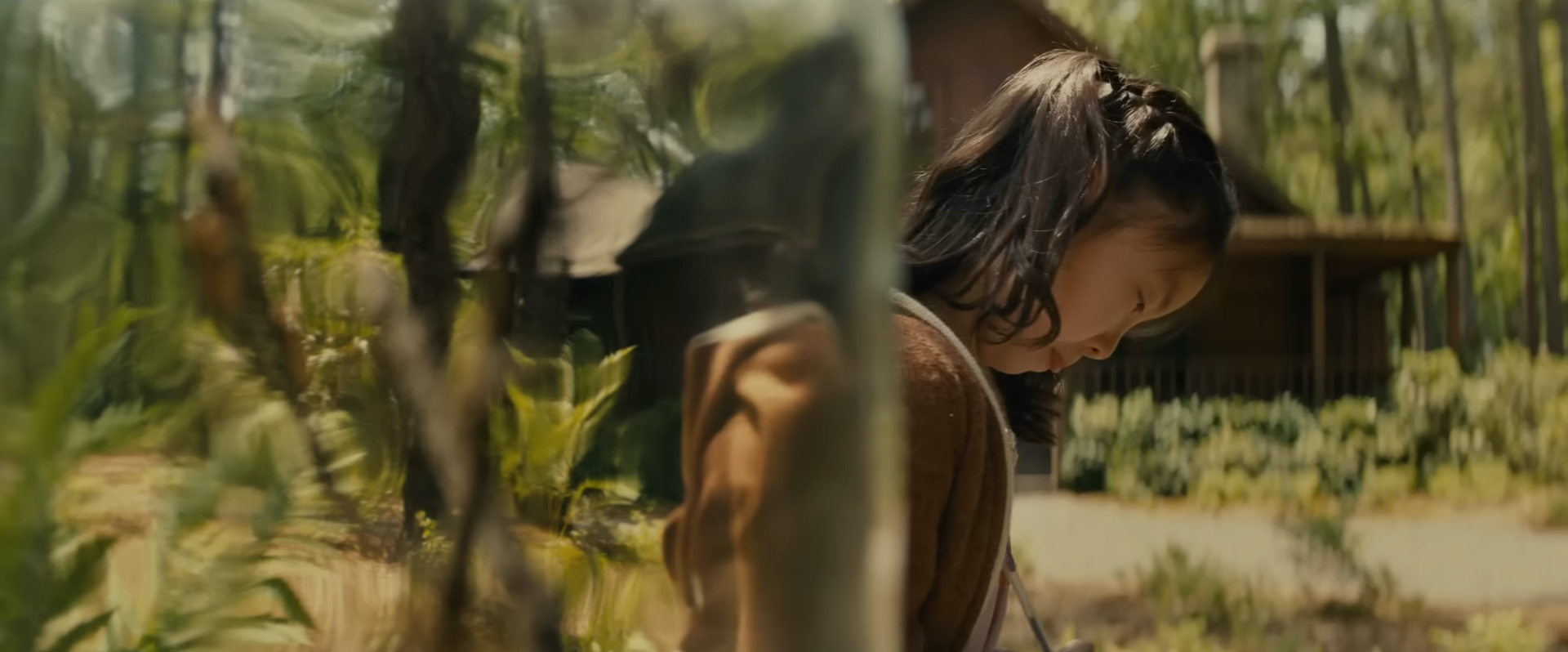
As both slowly crack under pressure, Jonathan Groff and Ben Aldridge do well to carry the emotional drama of this predicament, poignantly considering the implications it holds for their futures. Even greater still are the performances delivered by the four visitors, each being strangers reluctantly bound together by visions of the future. Rupert Grint is volatile as the gruff ex-convict Redmond, while Abby Quinn and Nikki Amuka-Bird offset his malice in the much kinder roles of Adriane and Sabrina. Dave Bautista quite easily steals the spotlight as the gentle giant Leonard though, leading the crew with pained obligation. At times, that doleful acceptance of his own God-given duty is even more compelling than the central dilemma itself, as in his character we see the inevitable endpoint of both Eric and Andrew’s journeys. If they are men gradually learning to accept responsibility, Leonard is a man who has already been there and shouldered that burden.
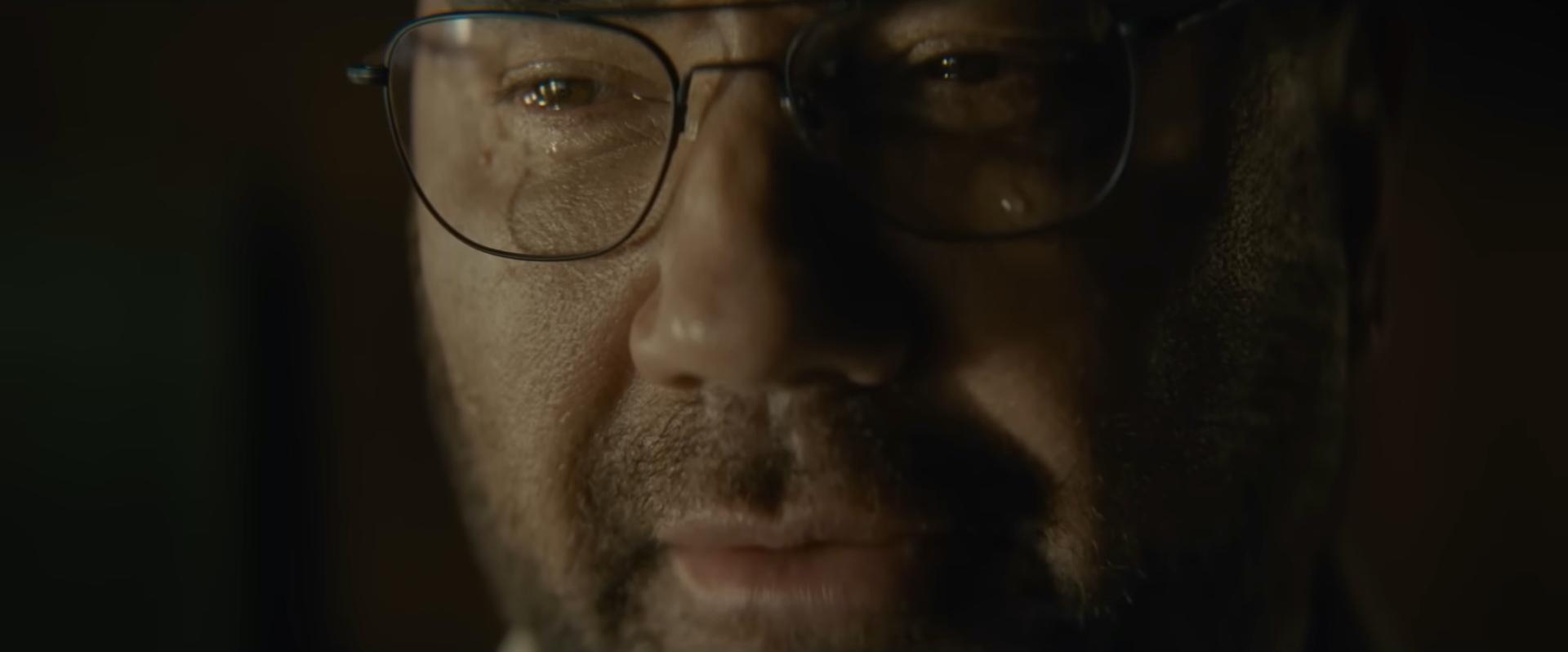
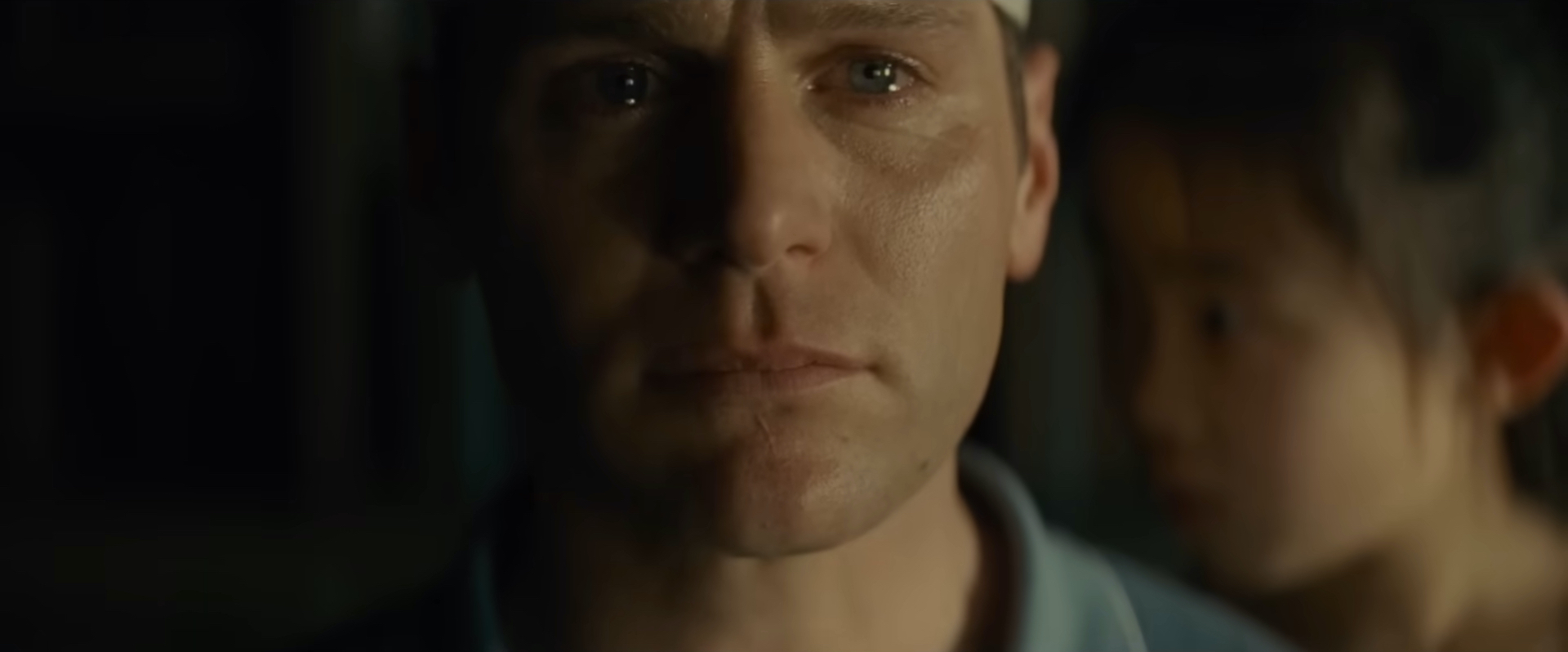
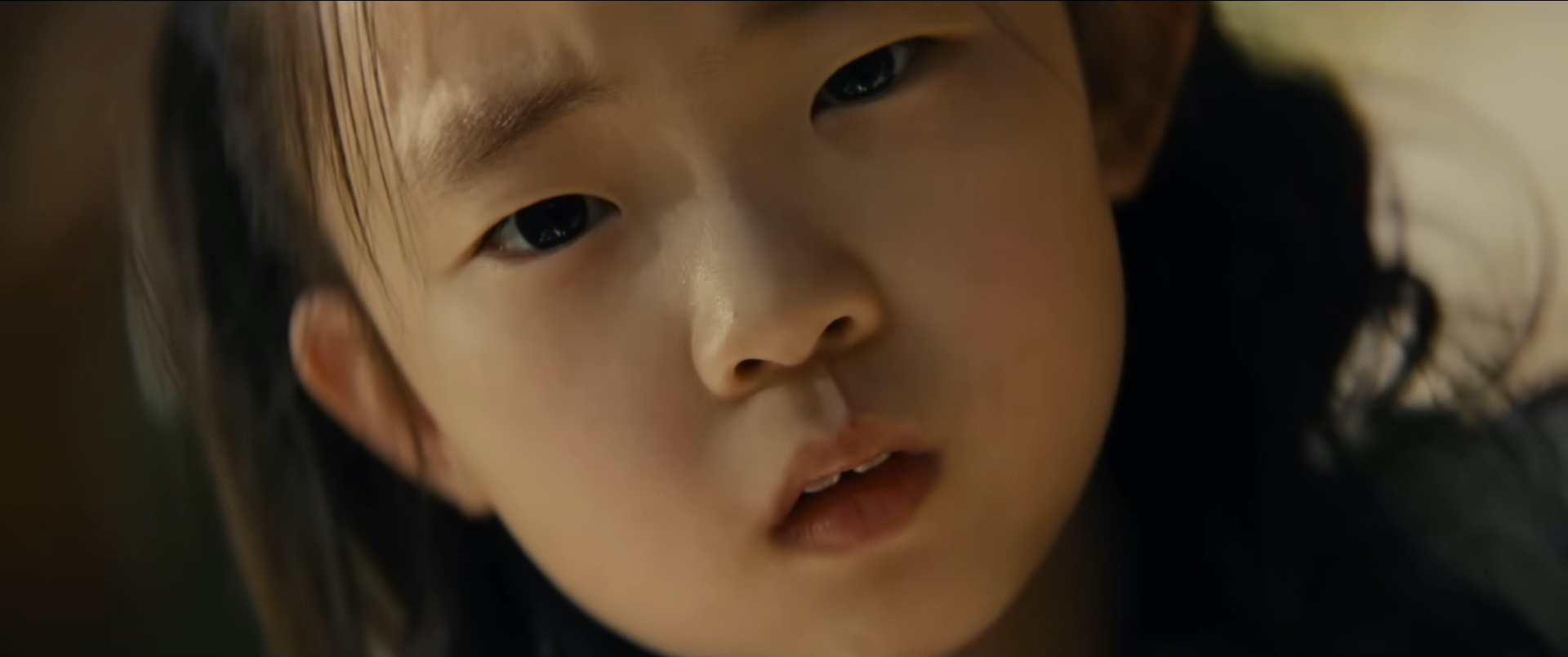
Within Shyamalan’s tight framing and low angles, Bautista’s large stature often fills entire shots, bringing an imposing physical presence to his monologues that wistfully consider their destiny and onus as a collective group. In shallow focus close-ups too, he and his co-stars talk right down the lens of the camera, and Shyamalan relishes the opportunity here to push his style in uneasy directions as his canted angles start tilting their faces off-centre. The consistency of this aesthetic is admirable, turning what could have been flatly staged conversations into riveting confrontations, evidently inspired by Jonathan Demme’s intimate direction of the anxiety-inducing meeting between Clarice and Hannibal Lecter in The Silence of the Lambs.
When the camera moves out into wider shots, the remote cabin proves to be a marvellously atmospheric set piece too with its giant bookcase and wooden interiors. There is taut tension here built into Shyamalan’s Hitchcockian camera movements and visual blocking alike, using the entire widescreen canvas to play out the nerve-wracking dynamics between victims and captors.
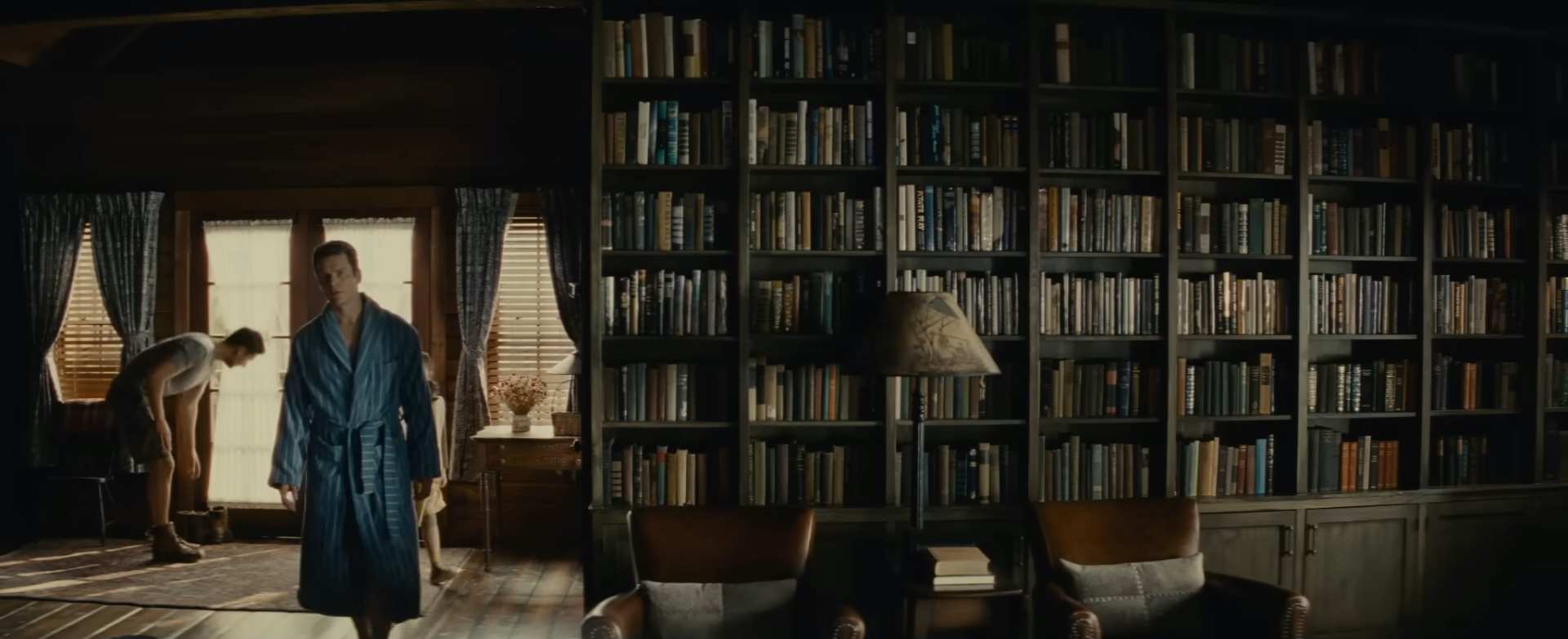
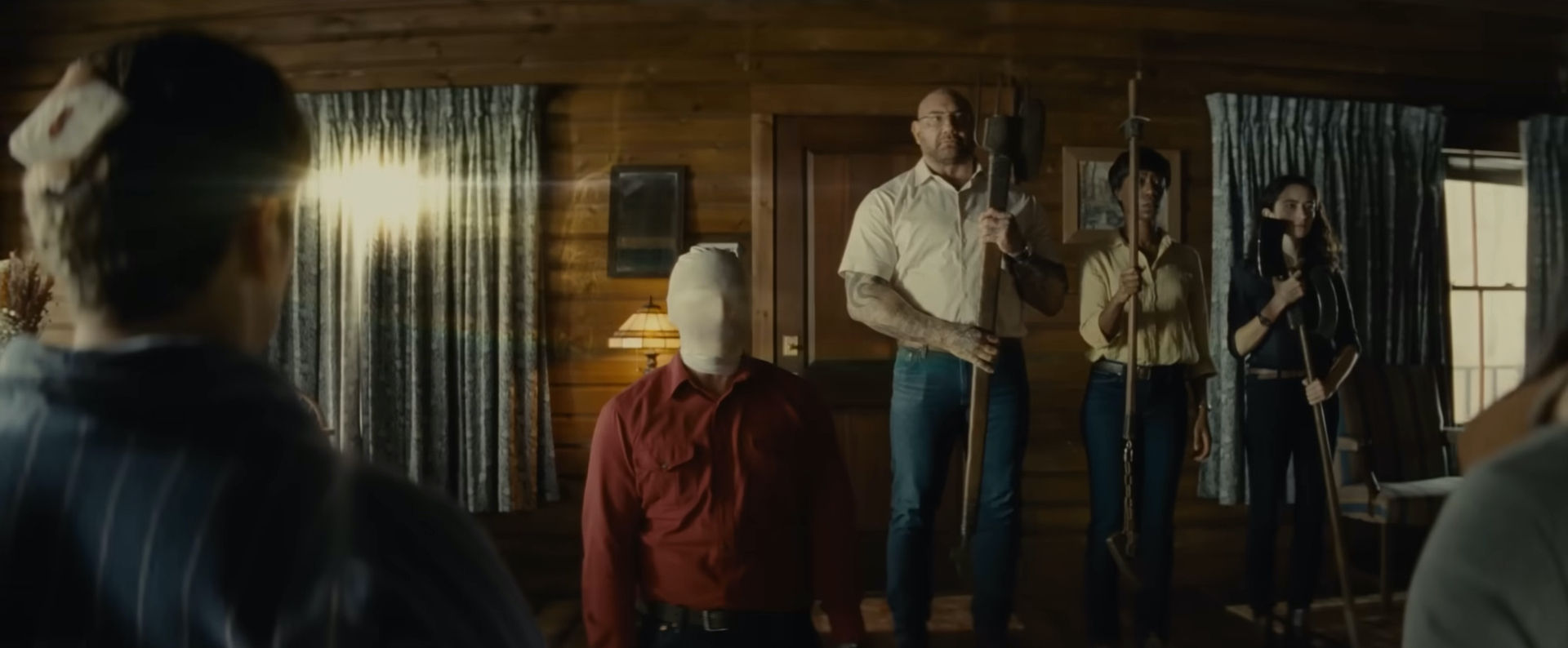
Quite simply, this is easily some of Shyamalan’s best direction, pulling together these elements into a singularly focused tension that rarely slips. Even here though, it is not without flaws. Flashbacks to Eric and Andrew’s past bring little besides additional character information that could have been more succinctly woven into the present-day plotline, and there is still the odd passage of needless exposition present that compromises the narrative momentum.
Still, this makes for a captivating 100 minutes of horror storytelling, getting under our skin with existential threats posed in Bautista’s calm, gentle manner. Between Eric and Andrew, we see two sides of humanity – one that submits to mistrustful cynicism, and a more selfless recognition of the pain that such wilful disbelief may inflict on others. Like so many of Shyamalan’s films, it is an expression of spiritual faith, accepting a greater purpose that is as equally mortifying as it is essential to human existence. By wrapping this up in such a sharply composed style, Knock at the Cabin lets us feel both the wondrous significance and disturbing fragility of human life on a grand, existential scale.
Knock at the Cabin is currently playing in theatres.
